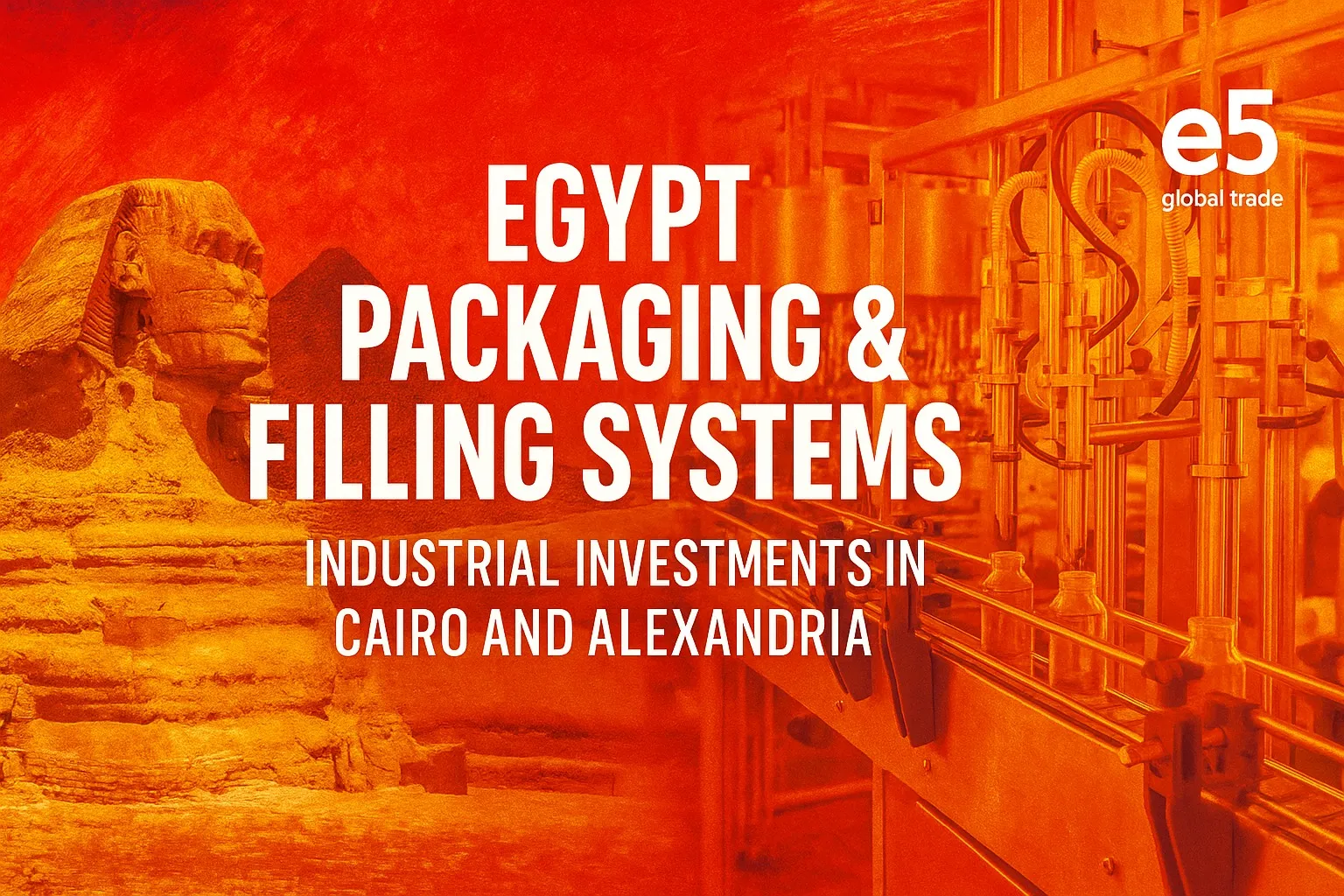Egyptian Packaging and Filling Systems: Industrial Investments in Cairo and AlexandriaEgypt isn't just a country that tells the story of the pyramids and the Nile. Today, it's becoming an industrial powerhouse, touching hundreds of thousands of bottles of water, millions of cans, and thousands of medicine packages every day. And the heart of this transformation beats in two cities: Cairo and Alexandria. Cairo is Egypt's political, economic, and cultural center. Here, modern factories no longer stand in the streets, but in industrial zones like 6th of October City, Shorouk, and 15th of May. Automatic filling lines designed for food, pharmaceuticals, cleaning products, and beverages track the product's date, location, and quality with precision systems like cameras. These facilities, built with technology from Turkey, Germany, and the US, strive not only to enhance production but also to enhance the value of local raw materials. For example, glass bottles in Egypt are filled by machines from Germany and shipped both to the local market and to numerous African countries. Here, packaging is no longer just a container—it's a brand identity, a symbol of trust, a key to exports. One particularly striking move in this process: green packaging. Paper, bamboo, and starch-based materials have been introduced to reduce plastic use. A Cairo-based startup, the "Eco-Pack Center," is producing fully biodegradable packaging. These products meet Europe's stringent environmental standards, paving the way for Egypt's first "eco-friendly packaging export brand." Some companies are even embedding QR codes on their packaging, showing consumers which farm the product came from, how it was processed, and whether it's recyclable. This isn't just about technology; it's about a new dialogue with the consumer. Alexandria, however, is the port side of this story. As Egypt's largest seaport, the city is filled with ships from all over the world. And now, these ships aren't just bringing grain or oil; they're bringing packaged goods produced in Egypt itself. The "AlexPort Packaging Zone," established in Alexandria, is a 150-acre site filled with factories jointly built by Turkish, Chinese, and Indian investors. Here, fish, fruit juice, shampoo, and detergents are packaged using frozen vacuum packaging systems. In a facility powered by Norwegian technology, Egyptian fish is sold within a week through Norway's cold chain. This isn't just about trade; it symbolizes Africa's transition from a port to a global market. Another innovation has also been launched in Alexandria: the "Bottle-Return System." 500 supermarkets are taking back plastic bottles collected from homes, cleaning them, and refilling them. Eight million bottles were recycled in one month. This is sparking a cultural shift in Egypt. Packaging is no longer something to be used once and thrown away—it's part of a cycle. These developments are backed by strong support. Turkey is Egypt's largest packaging investor. Thousands of Turkish experts are providing training in factories in Cairo. Germany is providing high-technology. The EU and the World Bank are providing millions of dollars for green projects. The government, however, has designated the packaging sector as a "strategic industry" and is supporting it with tax breaks, free zone advantages, and new training programs. Cairo University now has a Packaging Engineering department. Young people work with ideas, not machines. Of course, there are challenges like power outages. But there are also solutions: filling lines powered by solar panels, systems that recover 90% of water, special packaging designs with 3D printers… Sometimes a small innovation can trigger a major change. And the end result of this change is crystal clear: By 2030, Egypt will become Africa's largest packaging and filling center. Local products are now recognized not only in Egypt but also in North Africa, the Middle East, and Europe. Every bottle, every box, every label is now a language Egypt uses to say, "I am here." If the pyramids are a legacy of the past, packaging is the stones of the future. Egypt is now known not only for its history but also as a nation that has learned to reach the world by packaging itself. And this packaging isn't just about protecting the product—it's about preserving a country's self-confidence, economic independence, and hope. While a woman in Cairo works at a filling line, or a young person in Alexandria finishes a packaging design on their computer, Egypt is building a future with its own hands. And this construction is built with stones. It's not, it's with bottles, boxes, and a little vision.
E5 Global Trade | Yazılar
Egyptian Packaging and Filling Systems: Industrial Investments in Cairo and Alexandria
Küresel Haber Ajansı
·


